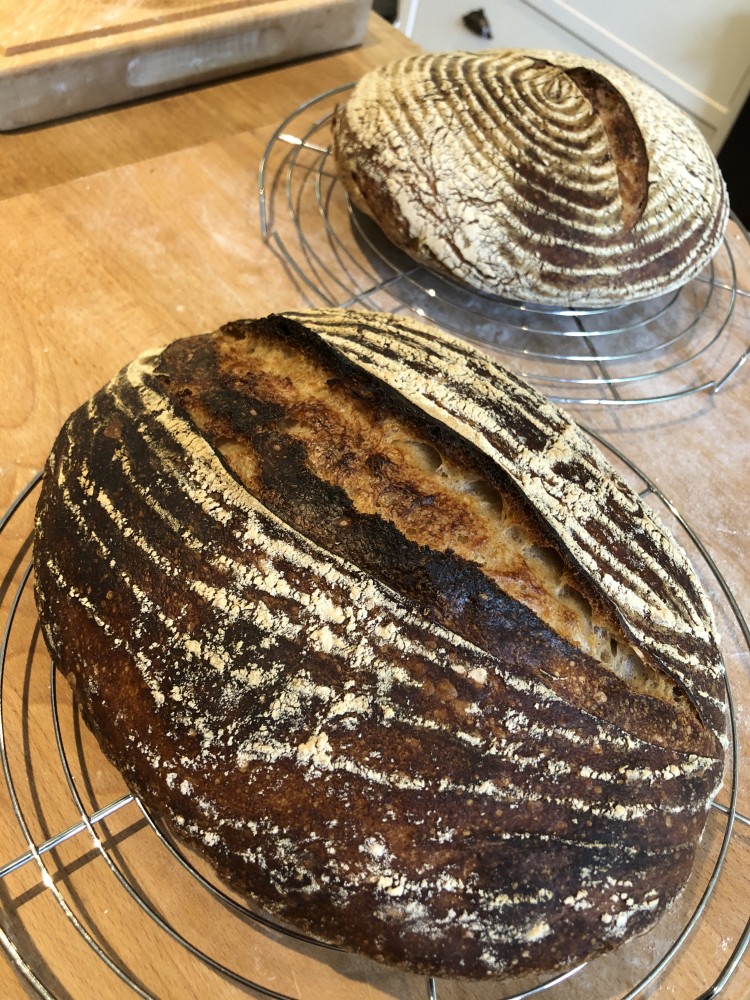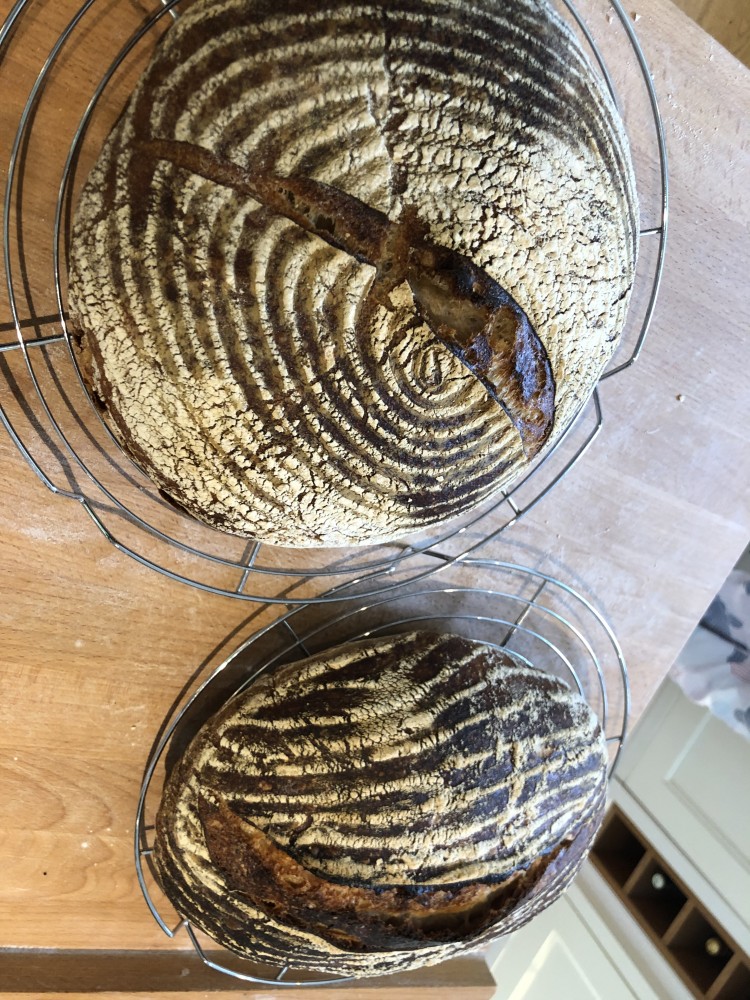Bread - What are you baking today…..
-
That looks great!
@Giles Here is what I came up with…
Their recipe in the book is by volume, 1.5 c starter, 2 c water, 2 tsp malt extract, 2 tbsp hard cider, 4.5 c bread flour, .75 c dark rye flour, 1 tbsp salt. So using 128 g/c I got the following:
Bread flour- 646 g/80%
Dark Rye-166 g/20%
Water-613 g/75.5%
Malt extract-10 g/1% (I omitted this)
Cider- 30 g/3.6%
Salt- 19 g/2.3%
Method: started the levain using 70 g starter, 70 g of the bread flour, 70 g rye, and 140 g water. 2.5 hours later, I mixed the remainder of the flour and water to autolyse- 576 g bread flour, 96 g rye, 473 g water, target temp 78 degrees. 30 min later (planned, was actually more like an hour as I am playing daddy daycare) I added all of the levain, the cider, and the salt and mixed until incorporated, with maybe 3 min of slap and fold in the bowl to end. Bulk for 3.5 hours, with 3x folds, at 15 min, then two spaced at 30 min after. I then divided and preshaped, let sit for 20 min, then shaped, and into the fridge overnight. Into the oven at ~25 hours after I started. Preheated for an hour at 500F, then baked at 450F with steam for 20 min, then without steam for 30 min. Remember to jack your oven back up for maybe 30 min to reheat between loaves.
Notes: For cider, I used a funky French one-Etienne Dupont Cidre Bouche Brut Organic 2009 vintage https://www.calvados-dupont.com/en/organic-cider.htm(I got it for free, and my last bottle now ten plus years on was still remarkably good!). A Basque cider could work well here too, but ultimately buy something you'll drink as you only use a little of it. And that little makes a difference! I could taste it in the dough, smell it during baking, and taste it in the final product.
The measurements I used made two smaller loafs then I am used to, so I'd bump the total flour up to 1000g and do math off of that for two better sized loafs. Also the original recipe counts the starter as an additional ingredient rather than part of the total formula, so I would probably treat it that way using the same measurements as above rather than make it using part of the total formula (so 70/70/70/140 g PLUS the measurements for the recipe) OR add those amounts to the total, which would make 75% bread flour, 25% rye, and 79% water (but I'd probably go 78% water to account for the cider). Either way, you'll change the percentages in the end.
The hydration looks low, but remember the cider adds more liquid, taking it to around 80%… I'd probably bump the cider up to 4% just for a nice even number.
Next time I'll try the proportions a few lines above- 75% bread flour, 25% rye, 78% water, 4% cider with salt the same... It won't be long, because 24 hours later I've already finished a loaf by myself!
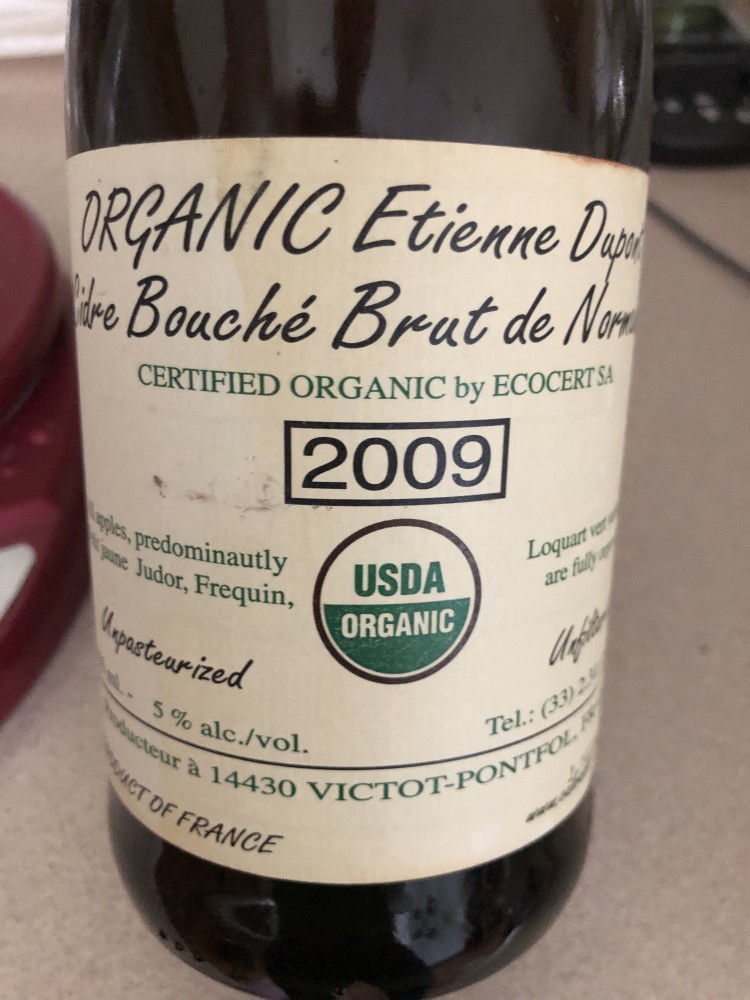
Lots of scribbly notes. Math is not my strong suit.
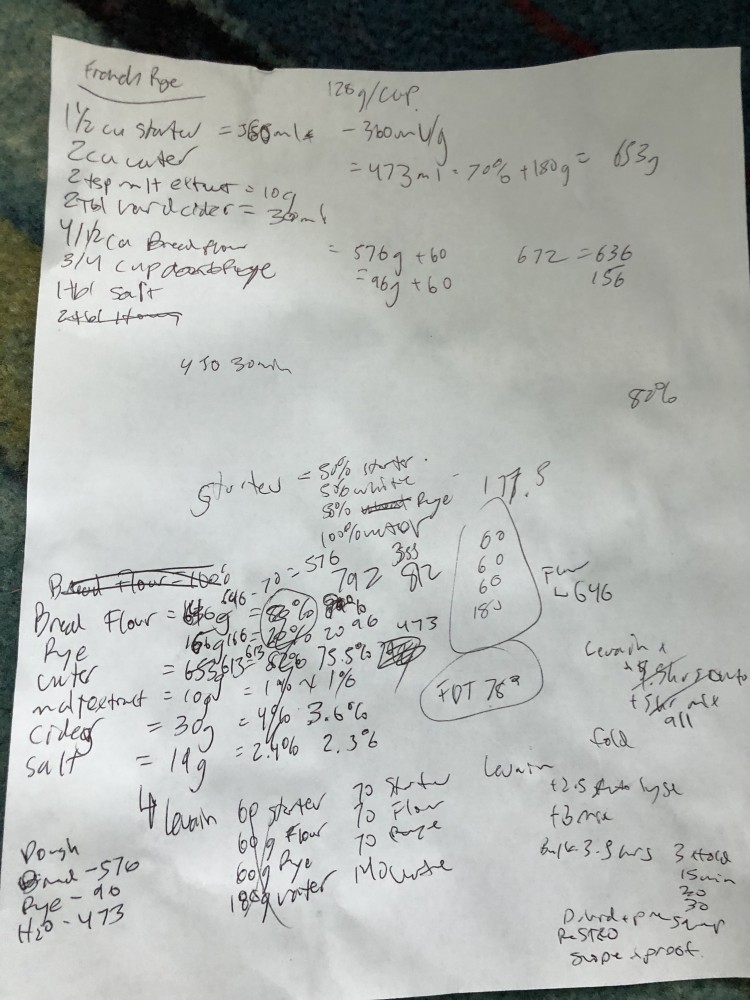
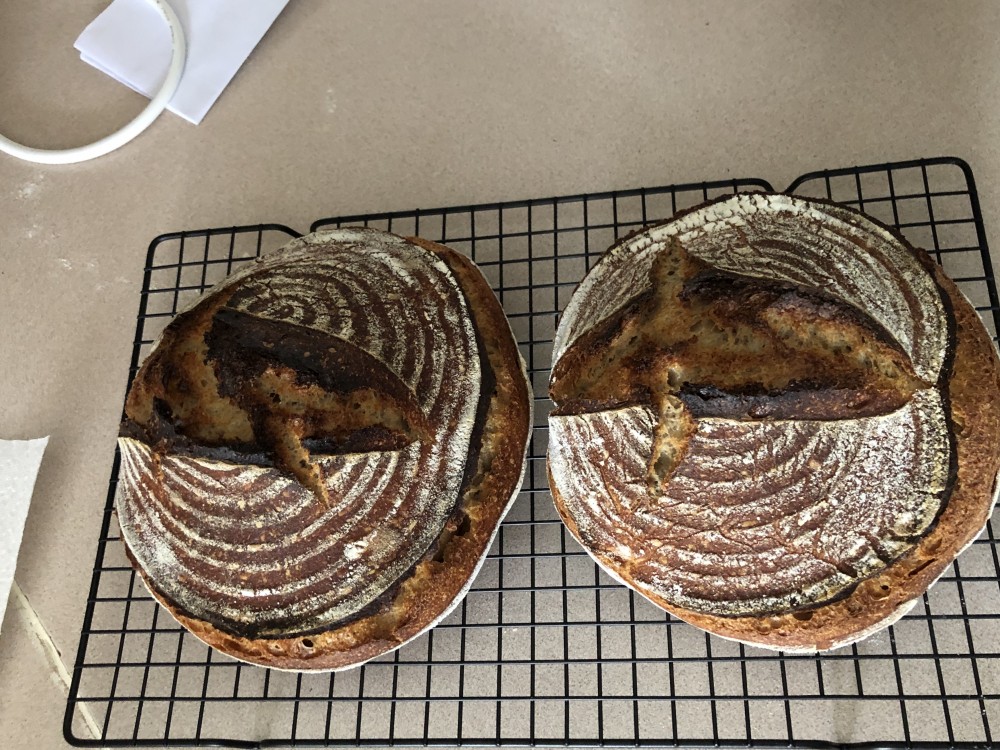
Couldn't wait, so it looks a little smooshed.
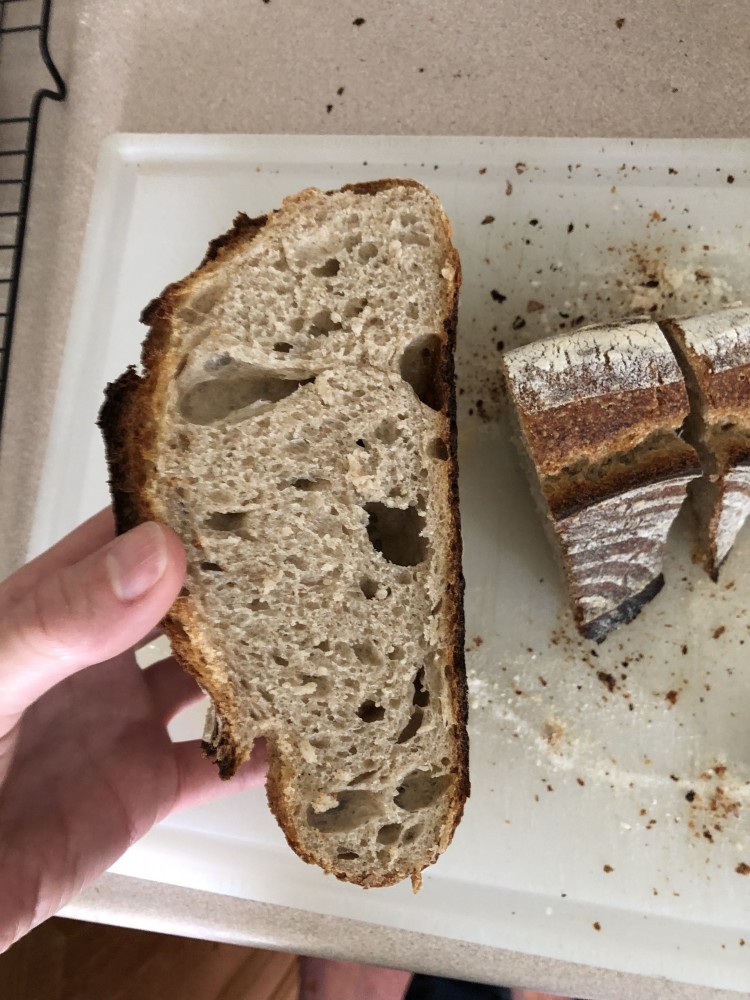
@Stuart.T I feel your pain! I felt like a hoarder, but when I saw AP Flour at the store I bought 5/2 lbs bags. Gotta keep that pantry stocked! -
I knew baking bread was not easy, but I didn't think it was rocket science.
Turns out it IS rocket science ??? -
@neversummer That is very kind of you thank you. Now to hunt down some dark rye….
-
Fancy giving that a go myself.
I have come to the conclusion that my starter is at a point where its potency means proofing time needs to be shortened.
The recipes used call for a bulk ferment og between three and four hours (finger test preferably) and approxiamtely 12-14 hours in the fridge. The bulk ferment time seems right. The mass doesn’t double in that time, but it is meaningful. Bubbles form, there is swelling, the finger test is passed.
However, the acitivity after refridgerating is meaningful. The dough continues to rise at a pace I would not have thought possible at 3C. By the time morning comes they are over-proofed.
So the options are, shorter bulk ferment, shorter fridge proofing, or both… any suggestions?
The results today were still acceptable:



-
Your fridge might not be as cold as some, so I think shorter cold proof is worth a crack.
Like the look of that bloomer neph!
Edit: Not necessarily any need to quote pics, especially if it the next post….Giles
-
@dinobarnesberlin I've probably overcomplicated it! It's really quite easy- the only tools you need beyond what you likely already have are a scale and digital thermometer. And flour, if you can find some!
@Giles You got it. Could pretty easily be made using the Biga method, and would be quite good. I think whole wheat or spelt would be great in place of rye, the important ingredient according to him is the cider.
@Seul I know! Like using Cristal to cook with! Though way less expensive…
Like using Cristal to cook with! Though way less expensive… -
I just like coming here to see all the great bread that you guys are baking:)
it all looks good to me! -
Had a go at sourdough bagels (again my oven sucks).
They came out well and made a hell of a breakfast sandwich
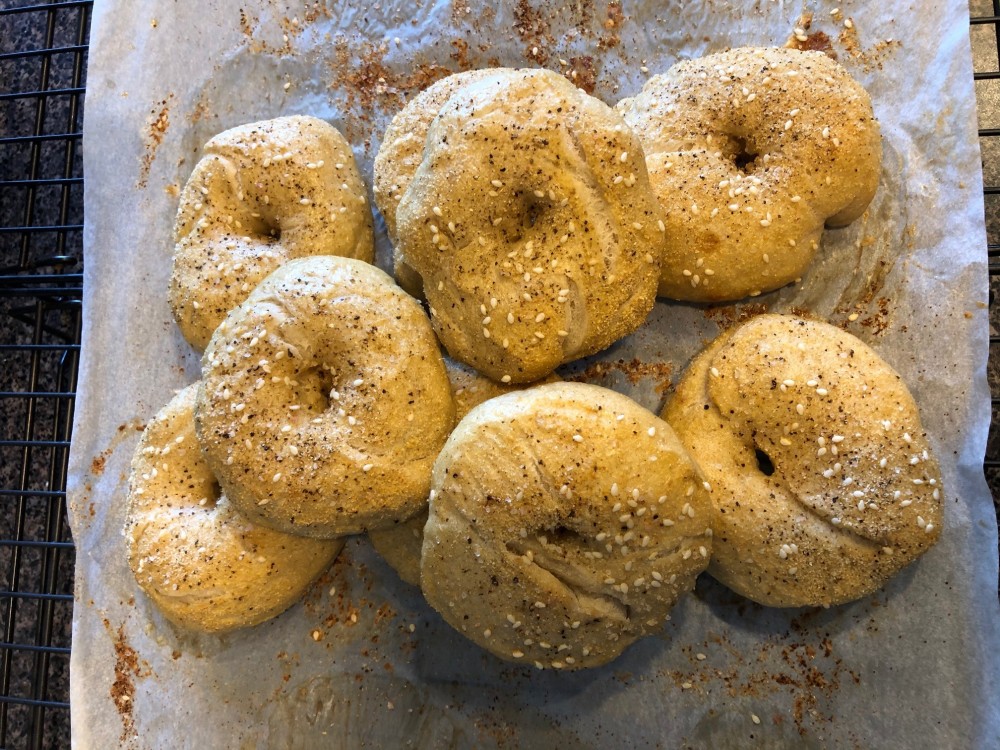
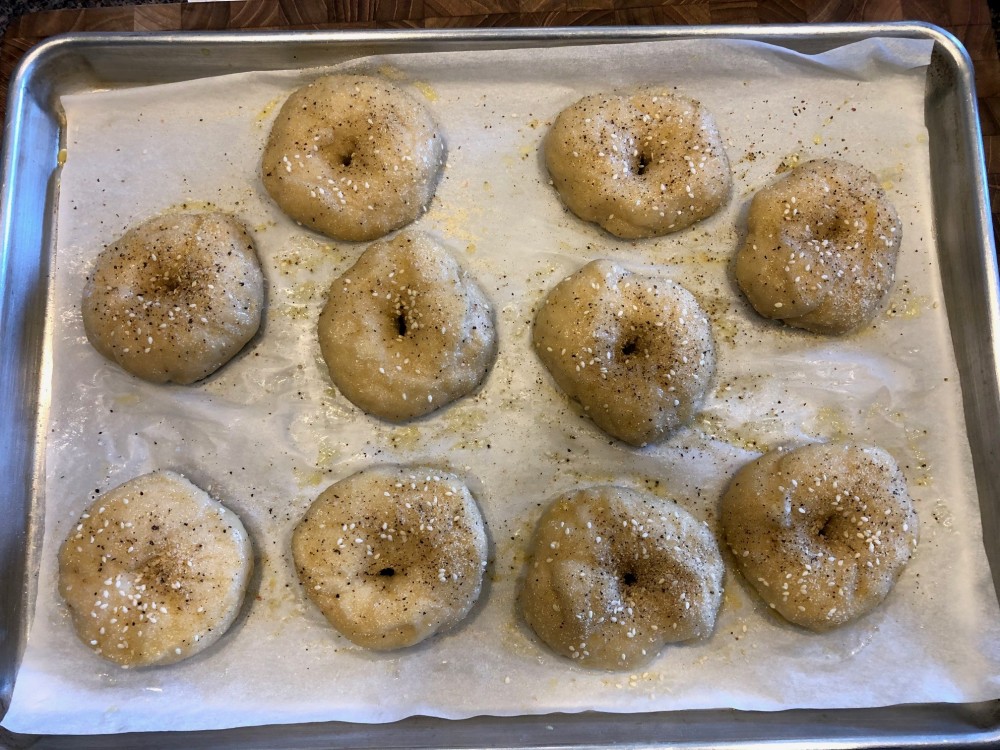
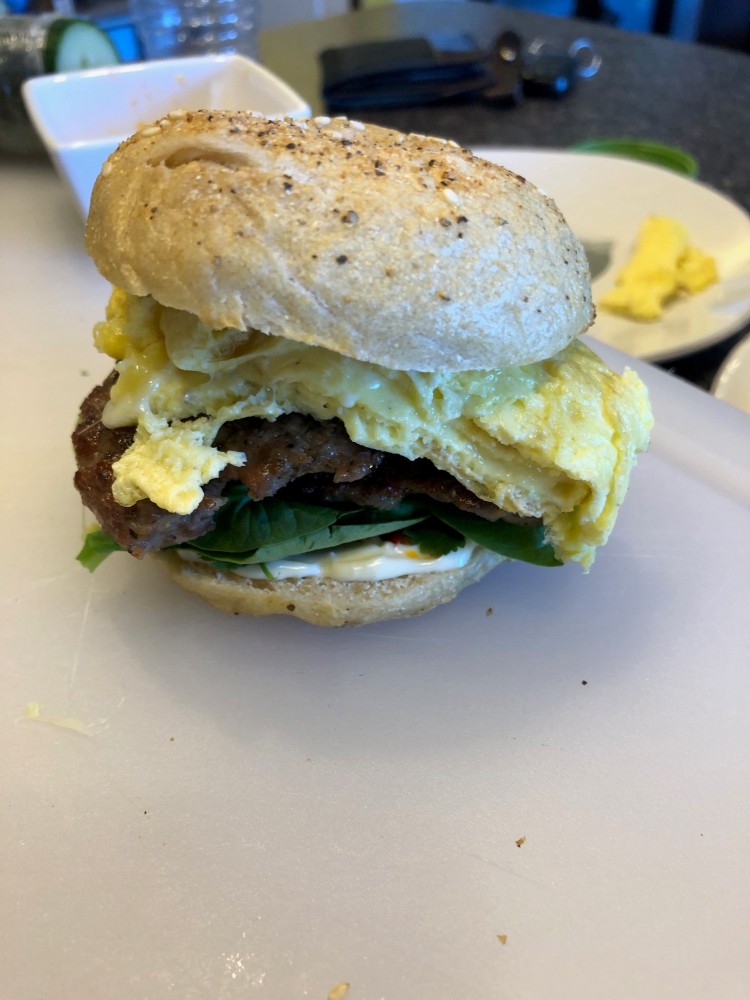
-
@Giles You got it. Could pretty easily be made using the Biga method, and would be quite good. I think whole wheat or spelt would be great in place of rye, the important ingredient according to him is the cider.
Dark Rye found and ordered…....


Once it comes I'll try and Biga-ify your recipe...
-
@sabergirl Marcia's loaf looks great. I'd love to see more pics of what people are doing with their bread! ME ME ME I'll go first!
I was initially using AP flour because it's all i lazily grabbed at the store, but i had forgotten we have a special High Gluten flour from a pizza crust project at work. that's been a game changer for me and my bread. It's incredibly chewy and springy. It also grills up perfect after brushing with a little ghee as seen in our grilled vegetable sandwich.
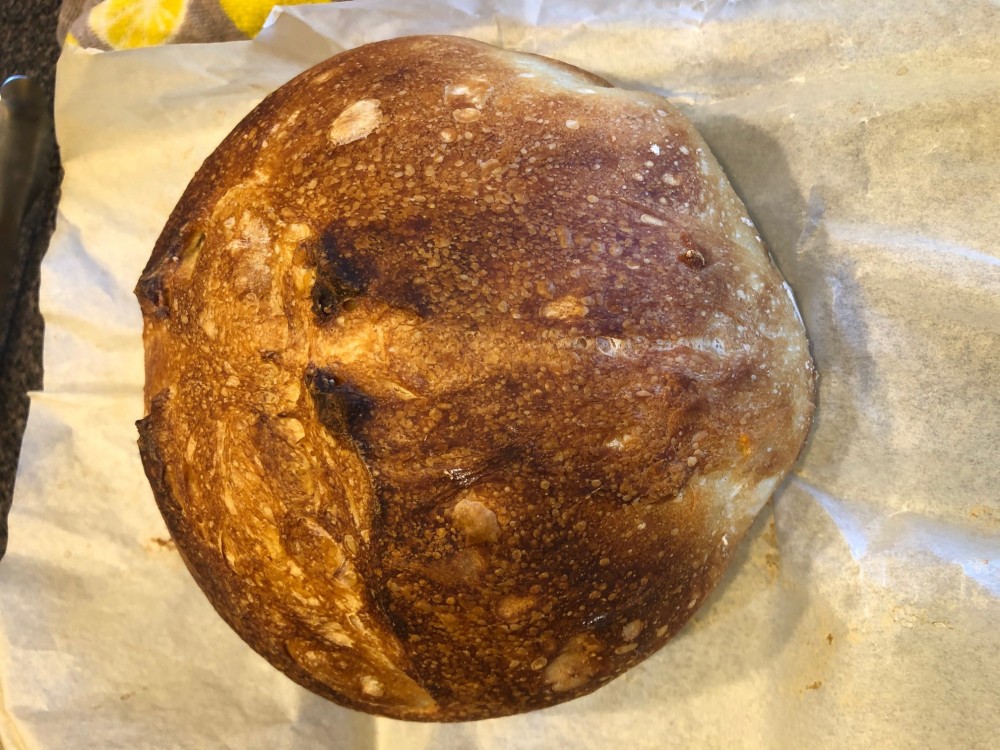
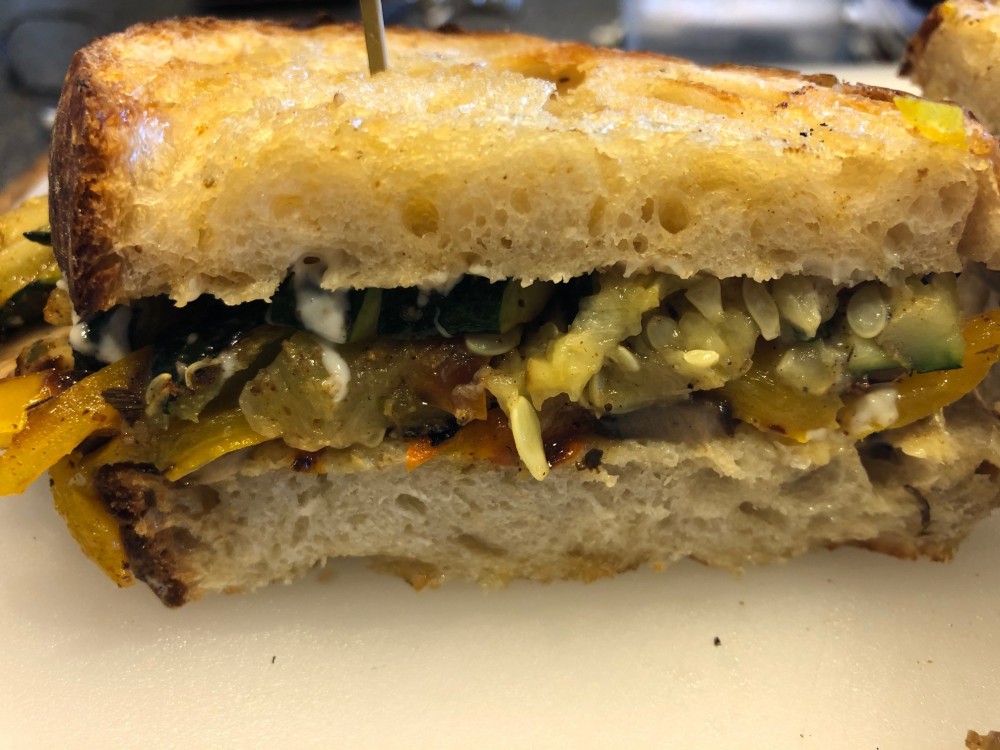
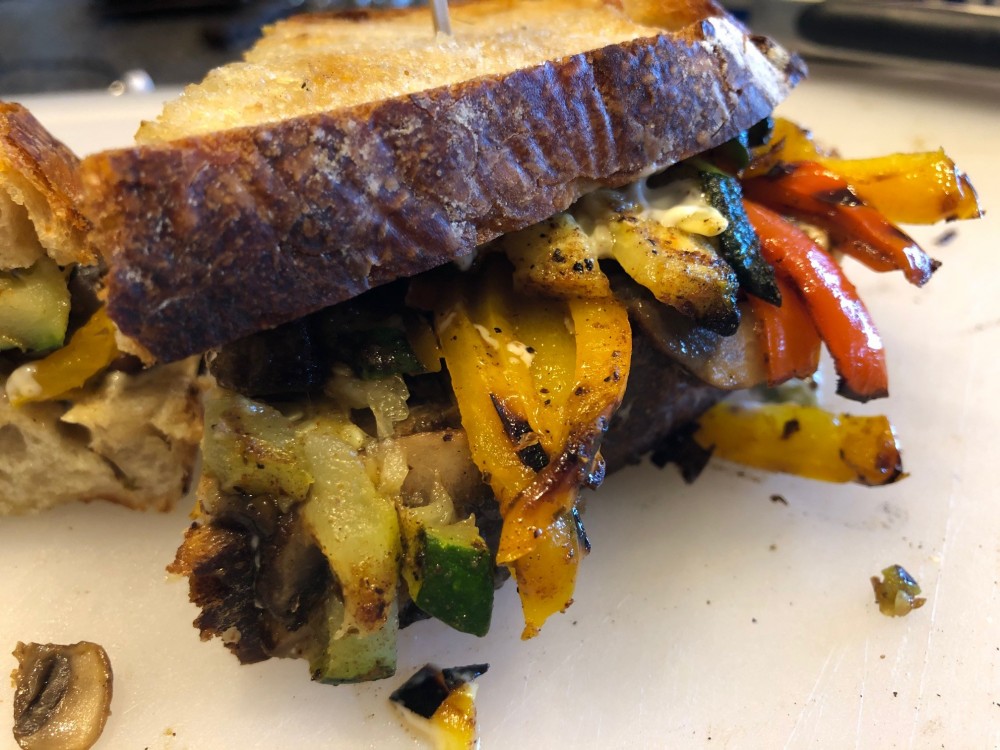
-
That’s a lovely bread @jordanscollected and wonderful idea with the grilled veggies
-
Just got this weeks bake going. I’ve revised my schedule so that the starter refresh is at 0630 and the autolyse starts 1700. So my starter will be 11 hours old when it goes in, folding and bulk ferment will continue until about 2200 and the bake will be around 0800 tomorrow. Hopefully I will avoid the overproofing issues I’ve been having.
Documention will have my wheat/whole wheat on a rye starter first and spelt/wheat on a spelt starter second.
Starters:


Autolyse:


-
Always interesting to see what happens when you change things up. As well as a shorter proofing time, I used a different spelt flour, and both doughs had a higher hydration than normal…
Spelt prepared for the oven...

And done…



And the crumb…

Much better oven spring and not over-proofed.
The crumb was quite different however. Very irregular, with quite dense areas, contrasted with large holes. Whether this was the increased hydration (I was a tad over 80%), the shorter proof, or the new flour, I couldn’t tell you.


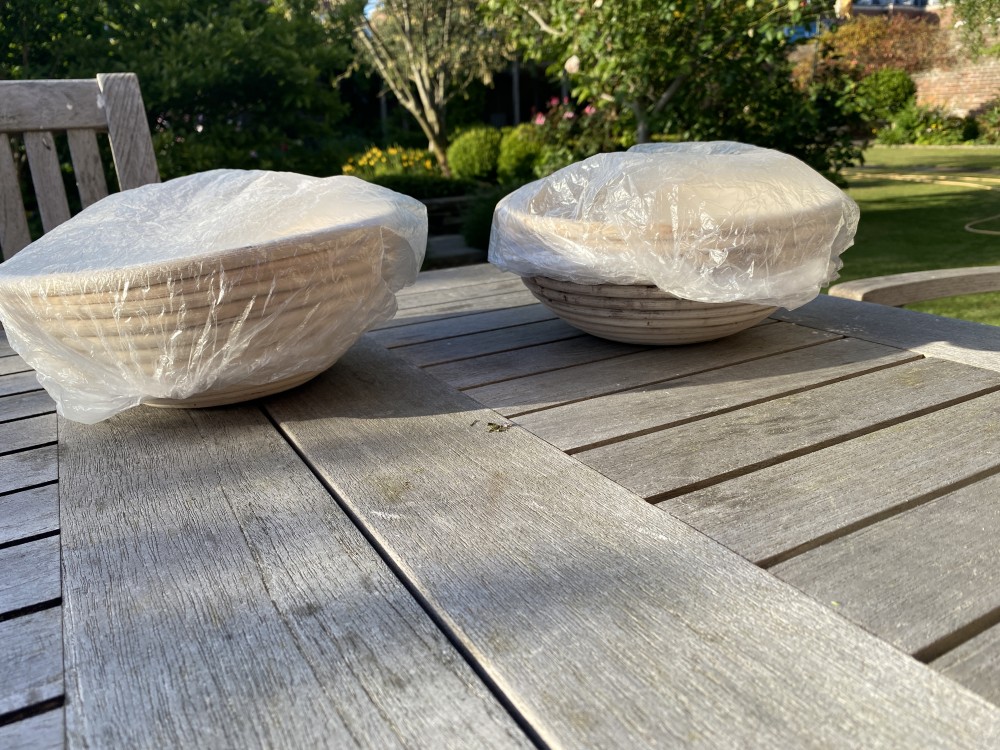


 ️
️